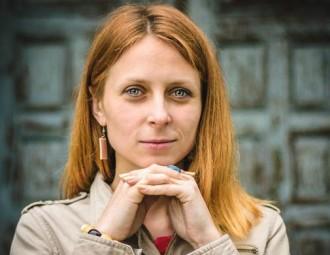Volha Malafejechava from Belarus wins German Development Media Awards

Seven journalists were awarded the German Development Media Awards for their stories and their courage to speak up.
The German Federal Ministry for Economic Cooperation and Development (BMZ) and Deutsche Welle, Germany's international broadcaster, award the prize in six regional categories. German Development Minister Dirk Niebel stressed the importance of journalists in helping shape a free and educated civil society. "This prize is awarded to journalists who courageously report on their country's development and especially the human rights situation - and they do this under very difficult circumstances," Niebel said during a ceremony in Berlin on August 14, 2013. He acknowledged those who "dedicate themselves to human rights issues - courageous, creatively and passionately."
DW's Director General Erik Bettermann also acknowledged the journalists: "This prize is to encourage you. To encourage you to get involved. To encourage you to raise your voice. And it should get the message across: You are not alone."
Winners from the Eastern Europe/Central Asia and Middle East regions were praised for their courage to research and publish their findings. Thus, Volha Malafejechava from Belarus wrote the story of a gay man in a country where homophobic attitudes are all too common.
Recently, after attending journalism workshops in the capital Minsk, Malafejechava developed a greater interest in social issues, such as the revival of the Belarusian language and culture and the country's attitude toward the death penalty. She also began supporting projects to preserve Belarus' historic and cultural patrimony and help develop agrotourism.
In her winning entry, "A gay man’s story," Malafejechava lets Sergei Androsenko, a young gay man, speak at length about growing up in a culture where homophobic attitudes are still widespread. While Malafejechava's article focused on one man's journey, its themes apply to many gay and lesbian youth in the region. The article sparked discussions of tolerance and homophobia in Belarus, whose strongman President Aliaksandr Lukashenka once remarked, "it's better to be a dictator than gay." RadioSTART, an internet radio station for which she has been writing online articles, showed courage in publishing this work, since even talking about LGBT issues in Belarus or Russia can invite trouble from officials.
The German Development Media Awards have been recognizing outstanding reports about human rights and development issues since 1975. This year, the prize was also open to participants from all over the world.
-
03.01
-
07.10
-
22.09
-
17.08
-
12.08
-
30.09



























